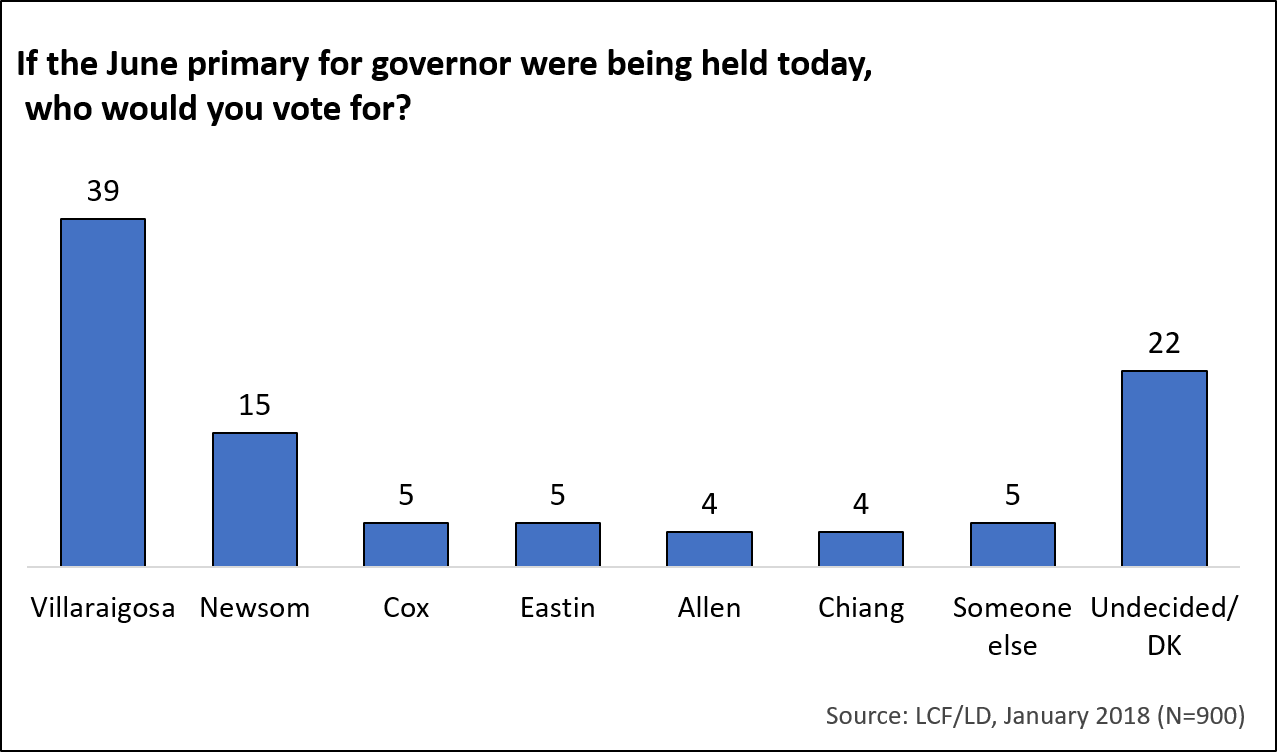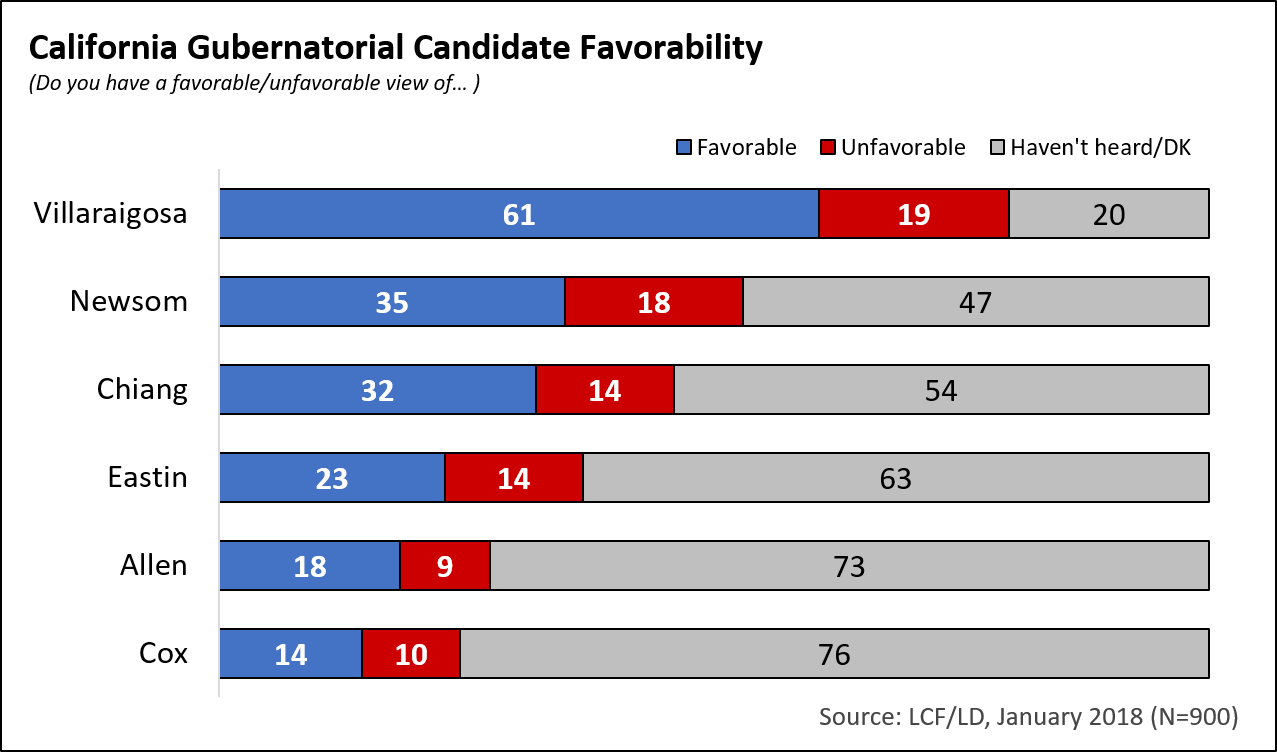A statewide poll of Latino registered voters by Latino Decisions finds that 68% intend to vote in the June 2018 primary elections for Governor and other statewide office, and that 2016 election of Donald Trump has further engaged and politicized Latinos. The poll of 900 Latino voters, was commissioned by the Latino Community Foundation, asked Latino registered voters their preference in the June 2018 primary election, as well as most important issues facing the state, and how closely they are following political affairs. Overall, 79% of Latino voters said they somewhat or very often follow California state politics and current affairs, while 46% said the election of Donald Trump in 2016 has increased their interest in politics. According to Latino Decisions co-founder, and poll director Matt Barreto, “Latino voters in California are very highly engaged and politicized in 2018 and ready to make their voice heard at the ballot box. In a state with more than 4.5 million Latino voters, politicians need to pay close attention to this community which we expect will participate at record high levels in 2018.”
When it comes to the critical question of the 2018 gubernatorial election, Democrat Antonio Villaraigosa was the leading candidate among Latino voters with 39% compared to 15% for Democrat Gavin Newsom. Still, both front-runners were leaving a lot of Latino votes up for grabs with 23% favoring another candidate and 22% saying they were undecided. Thus, the pivotal Latino vote remains in flux heading into the primary, with Villaraigosa perhaps best poised to capture the lion’s share.

Overall, Villaraigosa carried a 61% favorable rating, compared to 19% unfavorable, for a net +42 favorability among Latino voters with 19% stating they had no opinion of the former Los Angeles mayor. Fellow Democrat Gavin Newsom had 34% favorable against 18% unfavorable, for a net +16 favorability rating, but a large percent – 48% – said they had no opinion of Newsom. Likewise, other candidates for Governor found themselves with a majority of Latino voters stating “no opinion” with 55% giving no rating of Democrat John Chiang, 64% for Democrat Delaine Eastin, 75% had not heard of Republican John Cox, and 73% had no opinion of Republican Travis Allen.

Jacqueline Martinez Garcel, CEO of the Latino Community Foundation, stated “Latinos in California represent the largest Latino voting bloc in the nation. They are engaged and paying attention especially in light of today’s political climate. All of the candidates can do a better job in reaching out to this group. Informing and mobilizing Latinos will strengthen our state’s democracy.”
In their evaluations of the political parties, just 17% said the Republican Party was doing a good job of reaching out to Latino voters, while 46% said Republicans don’t care too much, and 31% thought Republicans were hostile towards Latinos. In contrast, 53% thought Democrats were doing a good job in their outreach, far better than Republicans, but also far lower than the 83% favorability rating given to former President Barack Obama, suggesting Democrats have work to do in shoring up the Latino vote.
Gary Segura, co-founder and senior partner of Latino Decisions added that “while Latino voters show high marks for political interest and taking action, most of the candidates are not breaking through yet and they need to seriously increase their outreach efforts to Latino voters. Simply put, Latino outreach cannot be an afterthought in California.”
In terms of public policy, Latino voters in California said the top issues they expected the next Governor to address are immigrant rights, creating jobs and improving the economy, increasing investment in public schools, expanding access to health care and encouraging affordable housing. All of these issues will be discussed at the 2018 Gubernatorial Forum hosted by the Latino Community Foundation and Univision on January 25, 2018.
The Poll was conducted by Latino Decisions and funded by the Latino Community Foundation and The San Francisco Foundation.
Topline results are available here, and crosstabs here.
Poll Methodology
Latino Community Foundation commissioned Latino Decisions to survey 900 Latino adults between January 6-14, 2018. Interviews were collected via landline, cell phone, and web. Additional funding was providing by The San Francisco Foundation. The phone portion was conducted by live interviewers who were bilingual and administered the survey in language of preference of respondents. The online portion was conducted in a respondent self-administered format, and the survey and invitation was available to respondents in English or Spanish. The full data are weighted to match the adult population in the 2016 Census ACS 1-year data file for age, gender, education, nativity, ancestry, and voter registration status. A post-stratification raking algorithm was used to balance each category to the ACS estimates. The survey carries a margin of error of +/- 3.3 percentage points. For questions on methodology please contact: Dr. Matt A. Barreto, [email protected]
About the Latino Community Foundation
The Latino Community Foundation has the largest network of Latino philanthropists in the country and has invested millions of dollars to improve the livelihood of Latino families. Its mission is to unleash the power of Latinos in California by investing in Latino-led organizations dedicated to the transformation of their communities. It is the only statewide foundation solely focused on investing in Latino youth and families in California. The Foundation is home to the first-ever Latino Non-Profit Accelerator, which exists to scale the impact of leading Latino-led organizations across the state of California. The Foundation’s innovative programs and unique partnerships have dramatically increased the level of civic engagement and political participation of Latinos, while also elevating their voices and leveraging their power to advance justice and equity. Working closely with key partners, the Foundation reached over 6 million people during the last election season. The Latino Community Foundation commissioned this poll with support from The San Francisco Foundation.


